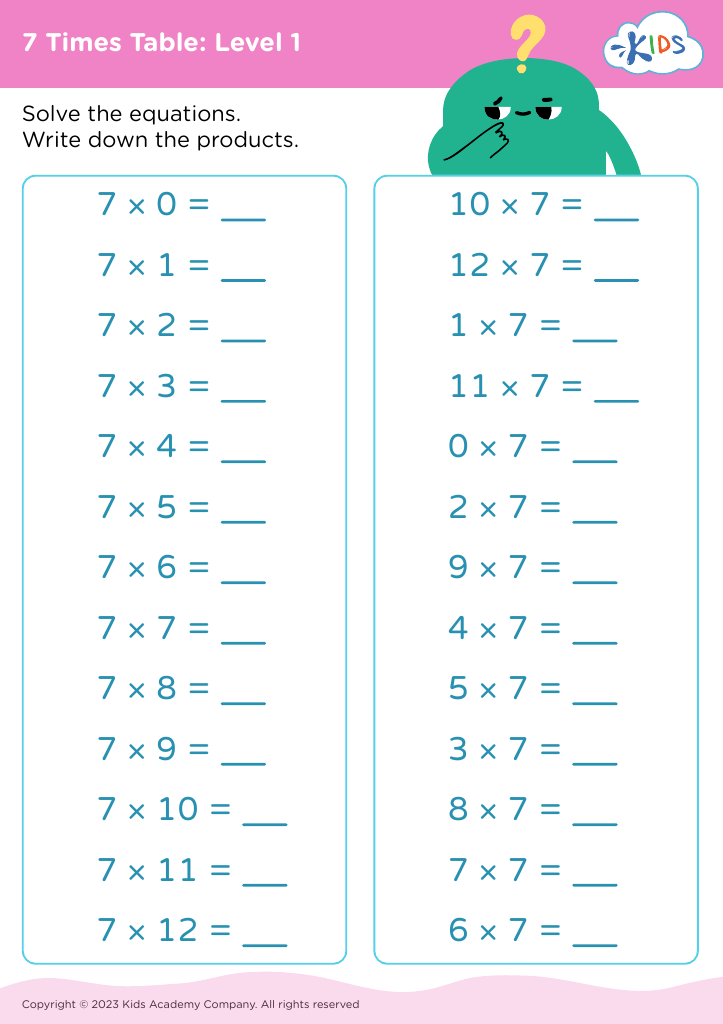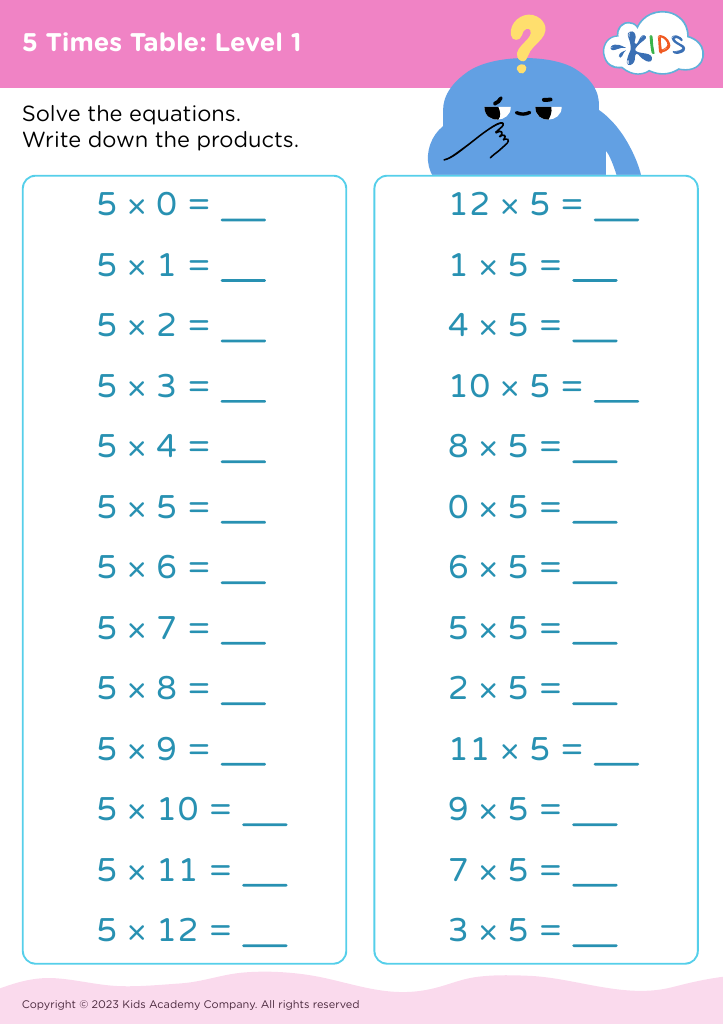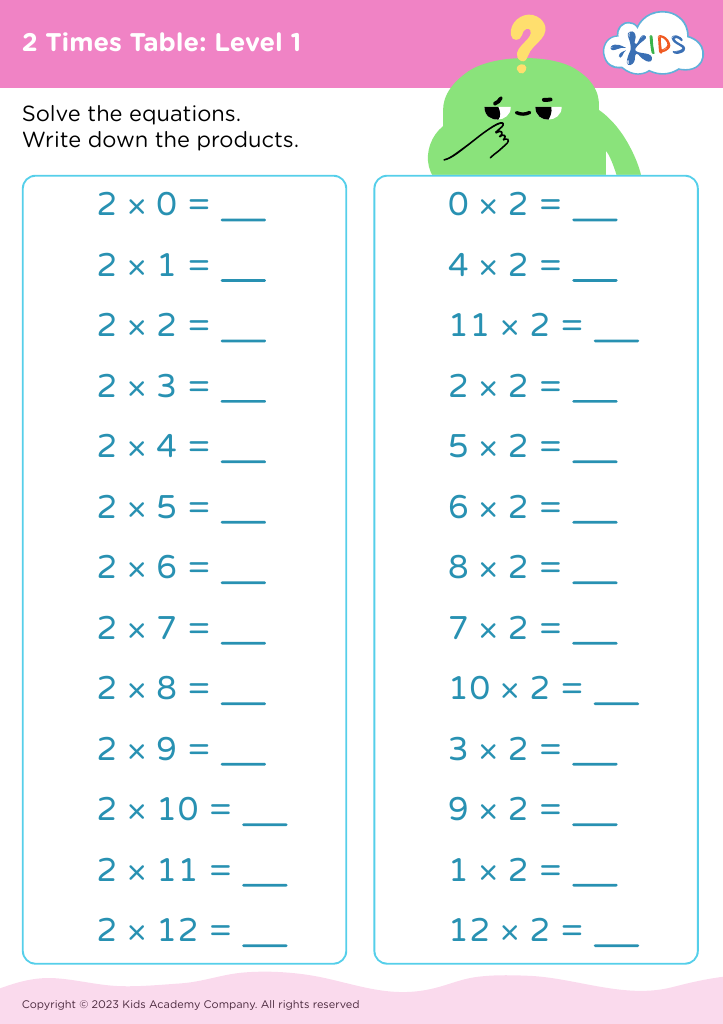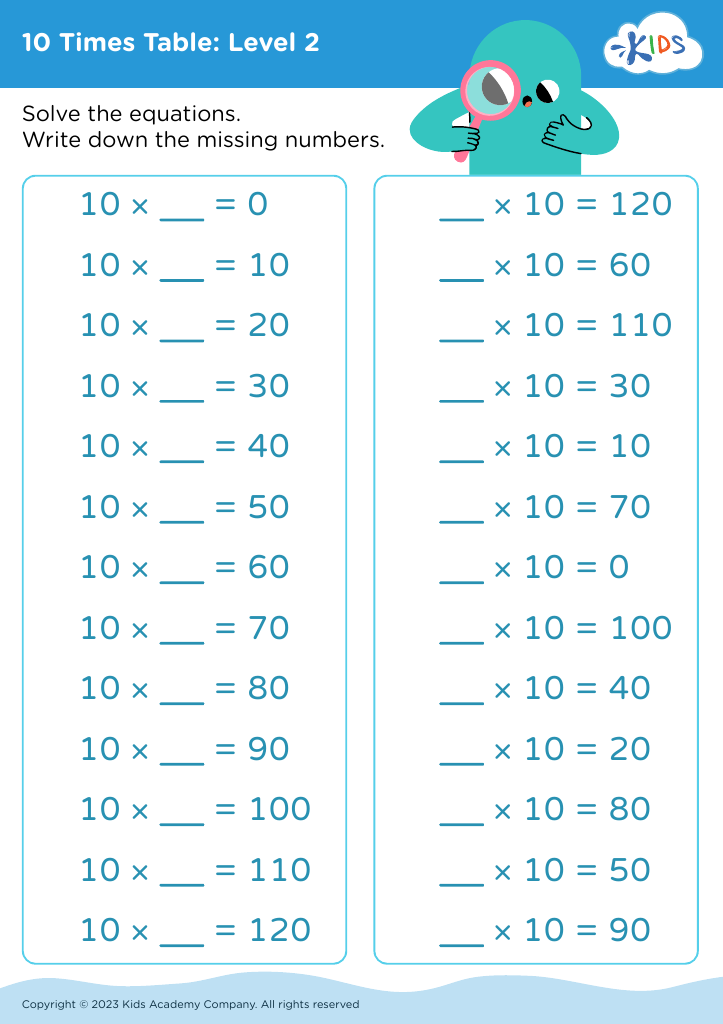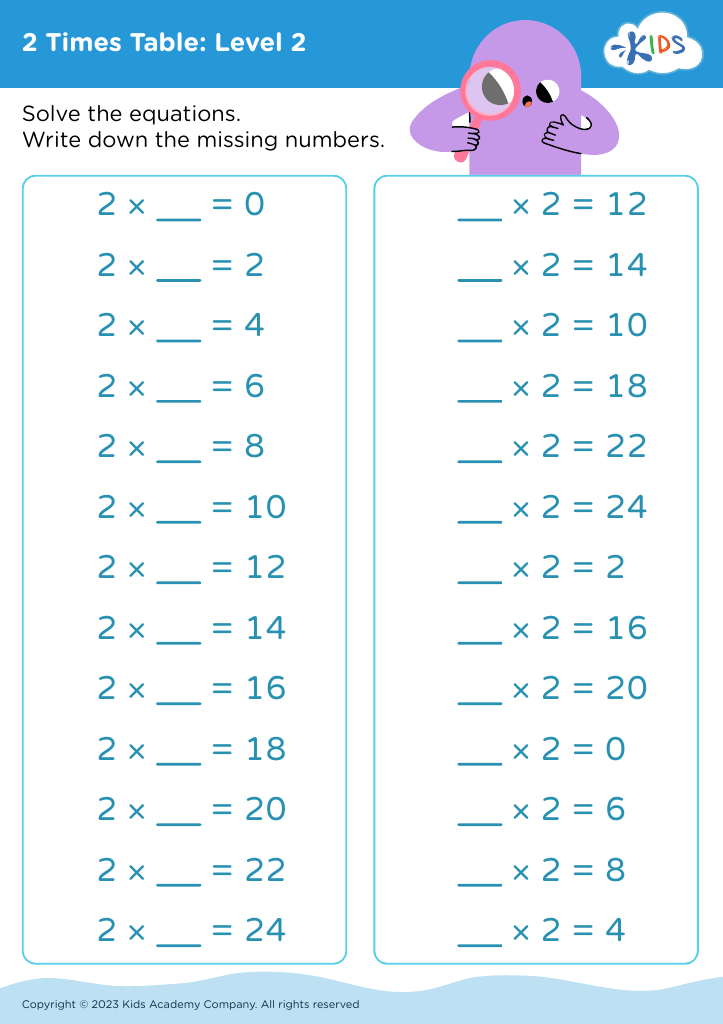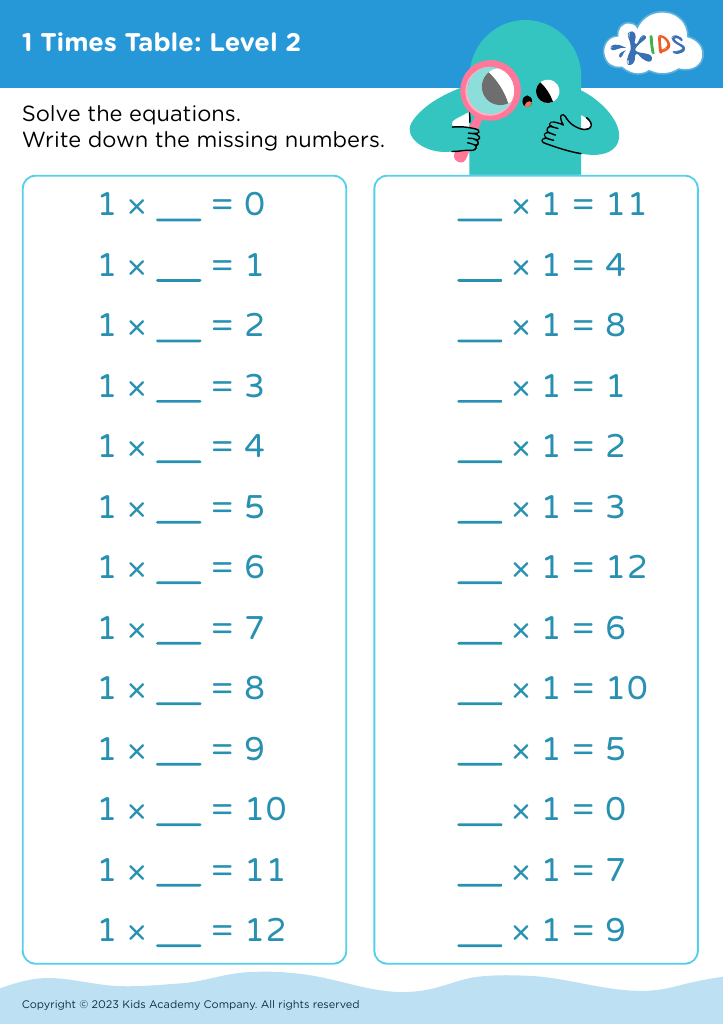Understanding times tables Math Worksheets for 8-Year-Olds
6 filtered results
-
From - To
Discover our engaging and educational times tables math worksheets designed specifically for 8-year-olds at Kids Academy! These printable worksheets will help your child master multiplication through fun and interactive exercises. Ideal for building a strong math foundation, the structured activities boost confidence while enhancing problem-solving skills. Each worksheet offers a variety of questions, incorporating both visual aids and practice drills to facilitate comprehensive understanding. Perfect for classroom use or at-home practice, these times tables worksheets ensure that learning multiplication becomes an enjoyable and rewarding experience for your young math enthusiast. Download today and watch your child thrive in math!
Understanding times tables is crucial for 8-year-olds because it lays the foundation for all future math learning. At this age, children are typically in third grade, where they start transitioning from basic arithmetic to more complex operations. Mastering times tables helps make this transition smoother.
Firstly, multiplication is the building block for division, fractions, and even algebra. Without a solid grasp of multiplication, children may struggle with these more advanced concepts later on. For example, an understanding that 6 x 4 is the same as 4 x 6 can aid in comprehending division (24 ÷ 4 or 24 ÷ 6).
Moreover, knowing times tables enhances problem-solving skills. When students can quickly recall multiplication facts, they free up mental resources to tackle multi-step problems and logical reasoning tasks. This fluency builds math confidence and reduces math anxiety, fostering a positive attitude towards the subject.
Teachers and parents should care because these early math skills are also linked to broader academic success. Studies show that early competence in math correlates with higher achievement in reading and science. Encouraging practice and offering support at this critical stage can ensure children develop a strong mathematical foundation, setting them up for future academic and life success.
